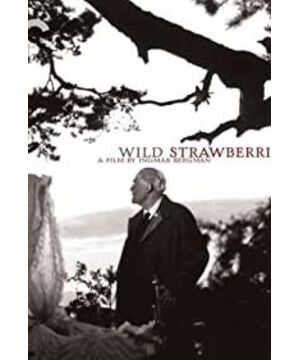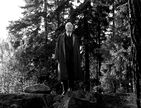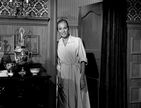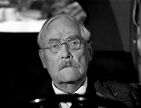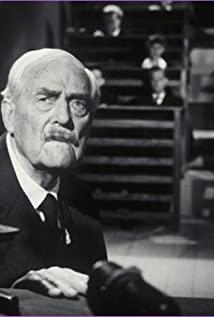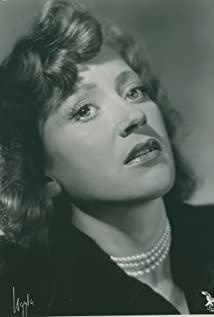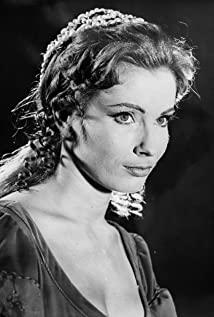I saw it at the beginning of the two thousand years. At that time, I was very impressed with Isaac’s dreams: the deserted and desolate streets, obviously the sun was heading, but the light was treated as cold and cold as woodcut paintings, and the white areas were horribly dense and black. He looked back alone and saw a clock without an hour hand hanging on the street lamp, suggesting the lack and meaninglessness of time in dreams and dying (he later saw the same clock again at his mother’s house, suggesting it again) He is close to death), seeing the faceless man’s anxious and distorted face, falling to the ground and bleeding when touched, seeing the unmanned hearse being repeatedly fettered, the coffin automatically sliding down, and the coffin opening is the face of Isaac, the dead Isaac Holding tightly to Isaac who was dreaming, they got closer and closer until the lens was blurred, so even Bergman got in close contact with the god of death again ("Seventh Seal" in 1957), and he said, "Actually I am Very afraid of death", but his repeated talk of death in his works can be understood as an attempt to dissolve fear with lens language? Just as he never believed in God ("Still in the Mirror" in 1961, "Winter Light" in 1963), but repeatedly discussed whether God exists. Isaac was awakened. He clearly realized that the dream was not illusory, so he changed the itinerary with panic and doubt, and drove on the road with his daughter-in-law.
The son is a complete copy of him, the same lack of family warmth ("Silence" in 1963, "Scream and Whisper" in 1972, "Autumn Songs" in 1978, "Marriage Life" in 1973), and the same fear of escape, even Flatly reject the birth of the child. Isaac has outstanding knowledge and noble medical ethics, but in his life he is selfish and cold, and dare not disdain to express his feelings, leading his girlfriend to switch to his brother and his wife Hongxing to go out of the wall, especially after his wife’s affair with others, making fun of him. It's just a sarcasm and sarcasm for him. The emotions of everyone around him are not complete. This is a cold and ridiculous little world. Everyone is hurting each other. This is also the description of family that Bergman has always been good at. Lack of warm encounters; only the three youths who came across on the road dedicated their enthusiasm and praise to him unreservedly (1953 "Monica the Bad Girl", 1955 "Smile of Summer Night", 1951 "Summer" "Interlude", in fact, these black and white films from the 50s and 60s are my favorite), but they are not his company for the rest of his life. There is no doubt that these three young people are the insinuations of their youth. Calling "Sarah..." softly, this call hit the past in the swaying breeze.
At the end, he wanted to redeem his son's love, but his son has become accustomed to a father who has no love, but the daughter-in-law recalled the long-lasting affection with a hug. He once again returned to his dream. Unlike the dream in the opening film, this dream is no longer anxious and fearless ("Dream" in 1955 was a helpless relief). Under the leadership of Sarah, he watched in the light of the sky. When his parents were sitting on the opposite bank of the lake and beckoning him kindly, he was finally rescued and released. He smiled peacefully in his sleep. He finally followed the god of death quietly. He finally reached an understanding with his parents on the other side.
Although this film was filmed in the 1950s, I think that both the content of the script and the skillful use of the stream of consciousness have reached the highest height in Bergman’s life. From this film, we may be able to see that perhaps Bergman wanted very early Reconciled with their parents, but it was not until 1982N, which was almost the end of his creation, in "Fanny and Alexandra", that we could truly see the warm dawn and understand that in this big house, we are the little ones. Small dreams and endless world, even if the wind and rain outside, we can get through all the hardships and difficulties with love. What’s interesting is that "Wild Strawberry" takes the old man who is about to die as the narrator, while "Fanny and Alexandra" takes the child with clear eyes and a flushed face like a flower as the perspective. I have no doubt that both are uncles. German said from behind that from the old man and the child, I saw a stubborn, skeptical, speculative, and uneasy Bergman, who had the wisdom of an old man and the innocence of a child. In any case, he was truly calm.
View more about Wild Strawberries reviews


